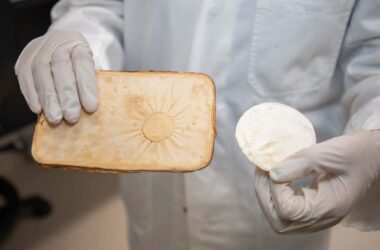Introduction
Quantum computers have the potential to solve problems at a much faster rate than classical computers. However, despite recent advancements in quantum computing, there are still several challenges preventing the widespread use of functional quantum computers.
The Question of Quantum Supremacy
In 2019, Google claimed to have achieved quantum supremacy with their quantum computer. This means that the quantum computer performed a calculation that was impossible for the best classical computers at that time. However, since then, other groups have presented improved algorithms for classical computers that challenge the advantages of quantum machines. The question remains: will quantum computers ever be able to pull ahead?
The Importance of Qubits and Circuit Depth
To settle the question of quantum supremacy, both the number of qubits (quantum bits) used and the complexity with which they are programmed, known as circuit depth, play a crucial role. Only when a quantum computer performs at a high level on both counts will the results be out of reach for classical computers or algorithmic improvements. Researchers are working to determine the point at which the number of qubits becomes large enough that classical algorithms can no longer catch up.
Noise and Verification Challenges
One of the challenges in achieving quantum supremacy is dealing with “noise” in the quantum system. Noise refers to the interference or errors that can affect the accuracy of quantum computations. Researchers at Google are working on quantifying the impact of noise on quantum tasks and developing methods to verify that the computer is truly performing quantum computations.
Alternative Designs: Photonic Quantum Computers
Researchers at the University of Science and Technology of China (USTC) are exploring an alternative quantum computing design that uses photons as qubits. This design, called Jiuzhang, has demonstrated quantum advantage in performing boson sampling. However, verifying the quantum nature of the measurements is still a challenge, and the results remain vulnerable to classical breakthroughs.
Practical Use of Quantum Advantage
While progress is being made in achieving quantum advantage, there is still a lack of practical applications for this advantage. Researchers are exploring how quantum computers can be applied to real-world problems such as drug design and machine learning. However, the verification problem and the potential for classical algorithms to achieve similar performance boosts remain significant obstacles.
The Need for Collaboration
Experts from various fields are working together to explore the potential applications of quantum computers in different scientific domains. Collaboration between quantum information scientists, physicists, chemists, and other experts is crucial in finding practical uses for quantum computers. The goal is not only to achieve advantages over classical machines but also to have scientists from other fields choose to use quantum computers for their work.
In conclusion, while quantum computers have shown promise, there are still challenges that need to be overcome before they become widely functional. These challenges include the need for a high number of qubits, managing noise in quantum systems, verifying quantum computations, and finding practical applications for quantum advantage. Collaboration and interdisciplinary research are key in addressing these challenges and advancing the field of quantum computing.








